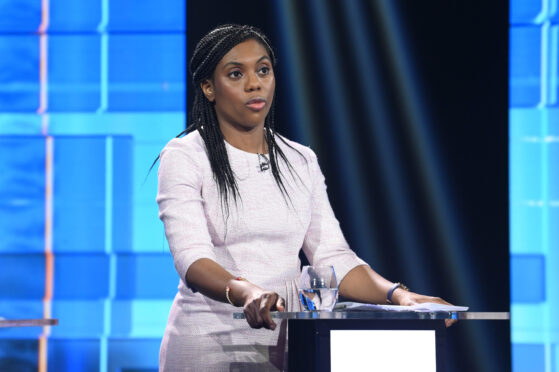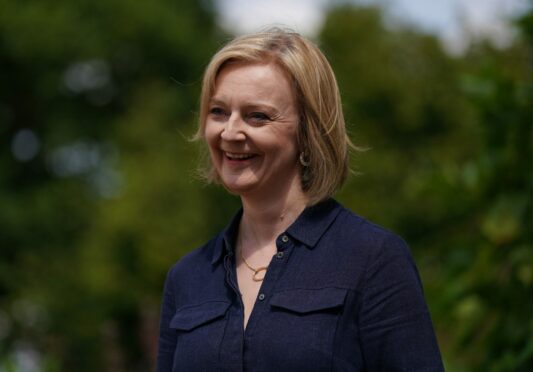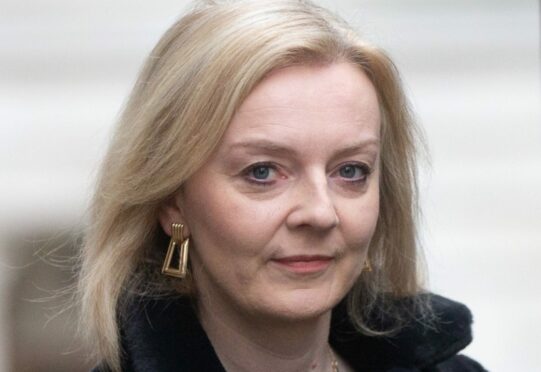
“This is what diversity looks like” tweeted a prominent Tory politician alongside a picture of the then eight contenders in his party’s leadership contest.
The image, in which the two white men in suits were in a distinct minority, spoke volumes. It hinted at a new kind of politics where the traditional barriers of sex and of race had been overcome and begged the question…who are the progressives now?
But all is not always what it seems.
The Tory party is about to either elect its third woman as prime minister or the country’s first Asian one. A record that must surely make Labour, the Lib Dems, and the SNP baulk but whether the apparent embrace of diversity among the party’s senior figures has made its politics more progressive is much more contentious.
So, yes, while the very fact that four women and four people of colour were standing to be the leader is something to celebrate, as many of us can testify, being a woman doesn’t necessarily qualify you to be a politician that will centre women in your approach to policy.
And neither does it follow that being a BAME politician means that you will be any less hostile in your approach to immigration or matters of race than any other. Just look at the evidence from around the Johnson cabinet. The second-generation immigrants who enthusiastically endorsed the callous plans to send refugees to Rwanda, who stayed silent about the hostility baked into a Home Office responsible for the scandal of Windrush, the inhumanity of dawn raids, and the vans that drove around our towns and cities like modern day child-catchers picking up asylum seekers with the explicit message of “send them home”.
And with some candidates overegging their military and naval credentials to appeal to a certain wing of the party, the contest began to look and feel like a bargain-basement line up for the Village People but without fancy dance moves.
The meteoric, although unsuccessful, rise of Kemi Badenoch, an MP perhaps little known outside of her own constituency, unless of course, you were already embroiled within the culture war over sex and gender and had grown accustomed to her forthright views rooted in logic, sense and intellect, was one of the more interesting facets of a predictably dull Tory leadership contest in which the question hanging most heavy now is, “is this it?”
Here was a young, black, bright woman, a mother of three, whose mere presence at the dispatch box would have been enough to challenge some deep-seated Tory stereotypes and to hold a mirror to the stale, white, middle-aged, upper middle-class men who lead on the opposite benches and who pride themselves on being the progressives.
Her early endorsement by Michael Gove, one of the most politically astute members of the party and whose sacking by the prime minister in a fit of pique can surely only have increased his likelihood of a return to the Cabinet, should have garnered more attention than it did.
And in a party politics that has become much of a muchness, Badenoch seemed to offer a real choice. Even in her defeat, what Badenoch has done is given the country a glimpse of what the Tory party of the future could be.
She should be the measure that Labour and the Lib Dems hold themselves to when they ask what they need to do to beat Kemi. And while she will not save the party from surefire defeat in the next election, she may be the one to reboot her party and, more generally, our stuck politics.
But whoever wins the keys to No 10, they would be wise to keep Badenoch at close quarters because she is the future while both Sunak and Truss have that faintly stale whiff of Johnson’s discredited past.

Enjoy the convenience of having The Sunday Post delivered as a digital ePaper straight to your smartphone, tablet or computer.
Subscribe for only £5.49 a month and enjoy all the benefits of the printed paper as a digital replica.
Subscribe © PA
© PA


